The effectiveness of sodium chloride and formalin in trichodiniasis of farmed freshwater tilapia Oreochromis niloticus (Linnaeus, 1758) in southeastern Mexico
Submited: 2017-12-29 15:20:31 | Published: 2019-03-14 09:18:35
DOI: https://doi.org/10.3856/vol47-issue1-fulltext-18
Abstract
Trichodiniasis is one of the major diseases found in fish aquaculture worldwide causing massive fish mortality and costly effects. In this study, fresh smears of gills and skin were prepared and analyzed for the presence of trichodinids under light microscopy, revealing the presence of Trichodina pediculus Ehrenberg, 1831, T. compacta Van As & Basson, 1989, and T. nigra Lom, 1960 and T. centrostrigeata (Basson, Van As & Paperna, 1983). The effectiveness of treatment with sodium chloride and formaldehyde was evaluated for controlling infection caused by these parasites in tilapia Oreochromis niloticus Linnaeus, 1758 in aquaculture facilities in southeastern Mexico. A total of 240 fish were examined. The results showed that all doses using sodium were effective for controlling trichodinids and eliminated the parasites (100%) however, fish exposed to doses of formalin showed a higher level of stress than those exposed to sodium chloride. Bathing in formalin 0.250 mL L-1 for 10 min and 30 g L-1 of sodium chloride for 10 min, significantly reduced parasitic infection in tilapia under captive conditions (P < 0.05). This is the first record of a trichodinids species for native wild freshwater fish in a culture environment in southeastern Mexico since all previous records were from exotic cultured fish. The species found were Trichodina pediculus, T. compacta, T. nigra and T. centrostrigeata are new records of host and geographic location.


